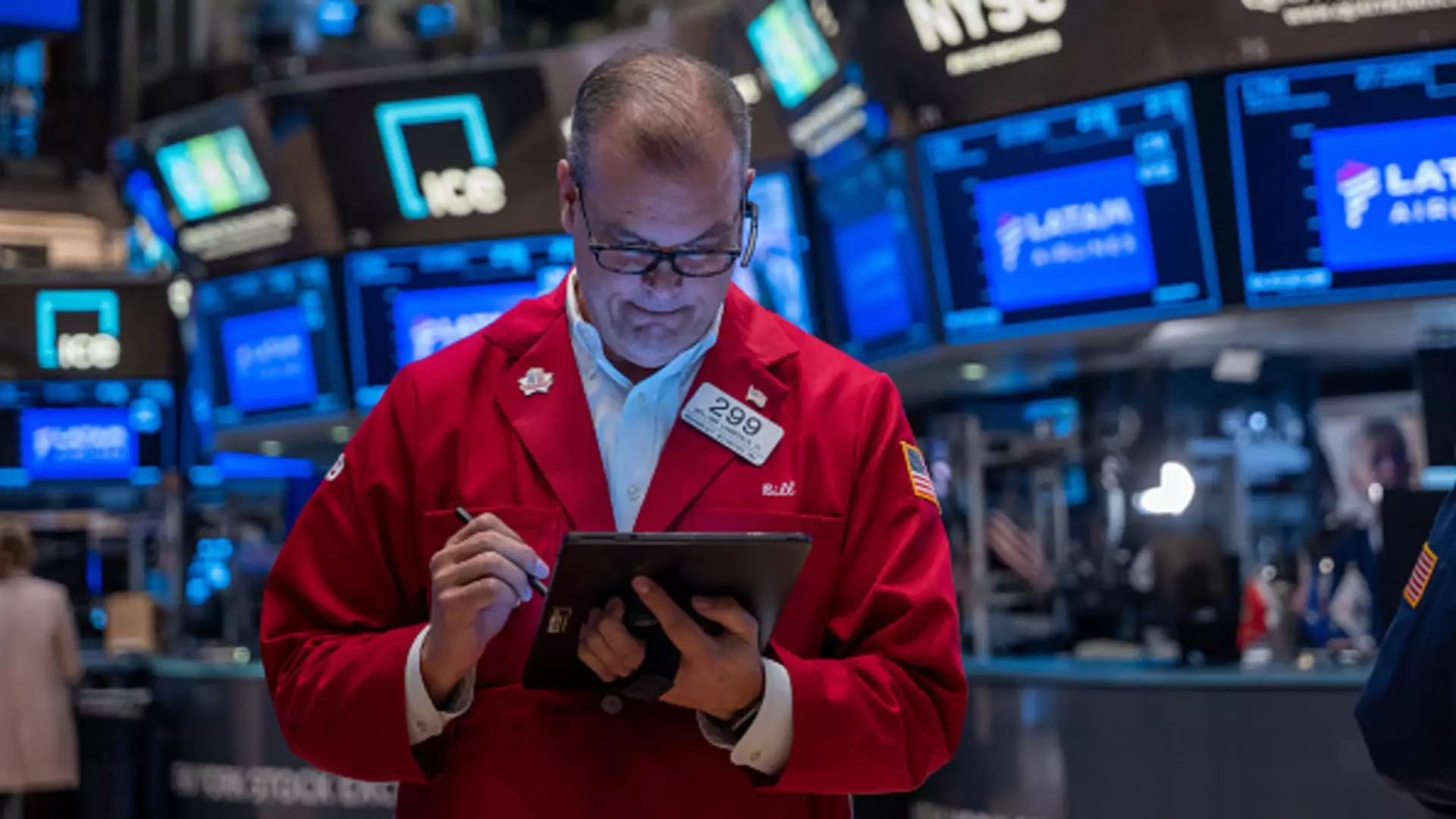As we delve into the current state of the financial markets, it is essential to analyze the shifting dynamics affecting major stock indices and dissect the factors influencing investor sentiment. Recent trends have seen the Dow Jones Industrial Average and the S&P 500 experience declines for two consecutive days, prompting a closer examination of market signals and economic indicators.
The fluctuations in Treasury yields have captured significant attention, as evidenced by the 10-year Treasury yield surpassing the 4.2% mark recently. This level of interest indicates a growing concern among investors regarding inflationary pressures and potential interest rate adjustments. Notably, the two-year yield stands at 4.03%, while short-term bills are yielding even higher; for instance, the three-month T-bill is currently at 4.63%.
Such alterations in yield levels are not merely numbers—they reflect broader market sentiments. The substantial interest in Treasury yields on websites like CNBC shows how pivotal these indicators have become for investors seeking refuge from stock market volatility. The preference for fixed income securities suggests a cautious approach as stock prices wobble amid mixed corporate earnings forecasts.
On the corporate front, Starbucks has been under scrutiny after a reported 4% drop in its stock during after-hours trading. The coffee giant has been losing traction with declining same-store sales, prompting the company to suspend its fiscal 2025 guidance. In a bid to retain investor interest, Starbucks has announced an increase in its dividend from 57 cents to 61 cents per share. While this move may pacify some stakeholders temporarily, the underlying concerns regarding sales performance cannot be overlooked.
This development aligns with the broader trend of consumer behavior shifts, driven perhaps by economic conditions or changing preferences. As Starbucks releases a more comprehensive assessment next week, all eyes will be on its strategies to navigate these turbulent waters and reinvigorate growth.
Food Industry Fearing the Contagion of Illness
Another significant player in the stock market, McDonald’s, has encountered its own set of challenges. The recent alert from the CDC regarding E. coli cases linked to the fast-food chain raises serious concerns. With affected individuals appearing across eight states, the company has proactively ceased the use of certain ingredients identified as contributing factors to the outbreak. Following this news, McDonald’s shares experienced a notable dip of around 6% in after-hours trading.
This situation echoes previous crises in the food industry, where companies like Chipotle faced long-term ramifications on stock prices and brand reputation following similar health scares. The landscape underscores the critical importance of food safety and proactive corporate governance in maintaining consumer trust and investor confidence.
Corporate Earnings: A Mixed Bag Ahead
Looking forward, the upcoming earnings reports from major corporations will serve as critical indicators of economic resilience. Companies like Coca-Cola and AT&T are slated to release their quarterly results soon, and anticipation is palpable. Coca-Cola has shown resilience in recent months, with a 7% price increase, suggesting that consumer demand may remain steady despite broader economic uncertainties.
Conversely, AT&T has demonstrated a modest recovery, being just 3.75% from its September peak. Stable performance in telecommunications further indicates sector-specific trends worth noting as investors evaluate where to allocate their resources next.
A Broader Perspective on Market Movements
With a variety of companies positioned to report results in the coming days—including Boeing, GE Vernova, and Tesla—the market will have ample opportunities for recalibration based on hard data. These earnings reports will be pivotal in shaping investment strategies. For instance, Boeing’s recent rally of about 5% raises questions about whether it is sustainable, given its historical volatility.
Ultimately, understanding the intersection of economic indicators, corporate performance, and investor sentiment is crucial to navigating today’s market landscape. As we await critical earnings announcements and assess the impact of external factors such as inflation and consumer trends, it becomes apparent that adaptability and strategic investing will be vital for success during these uncertain times.
The financial markets are in a phase of necessary recalibration. The interplay between Treasury yields, corporate earnings, and external crises will dictate market movements in the near future. Investors must remain vigilant and informed to effectively navigate a rapidly evolving economic landscape.

